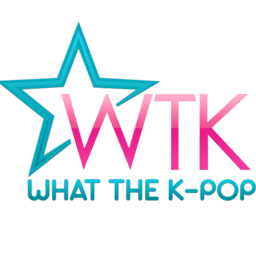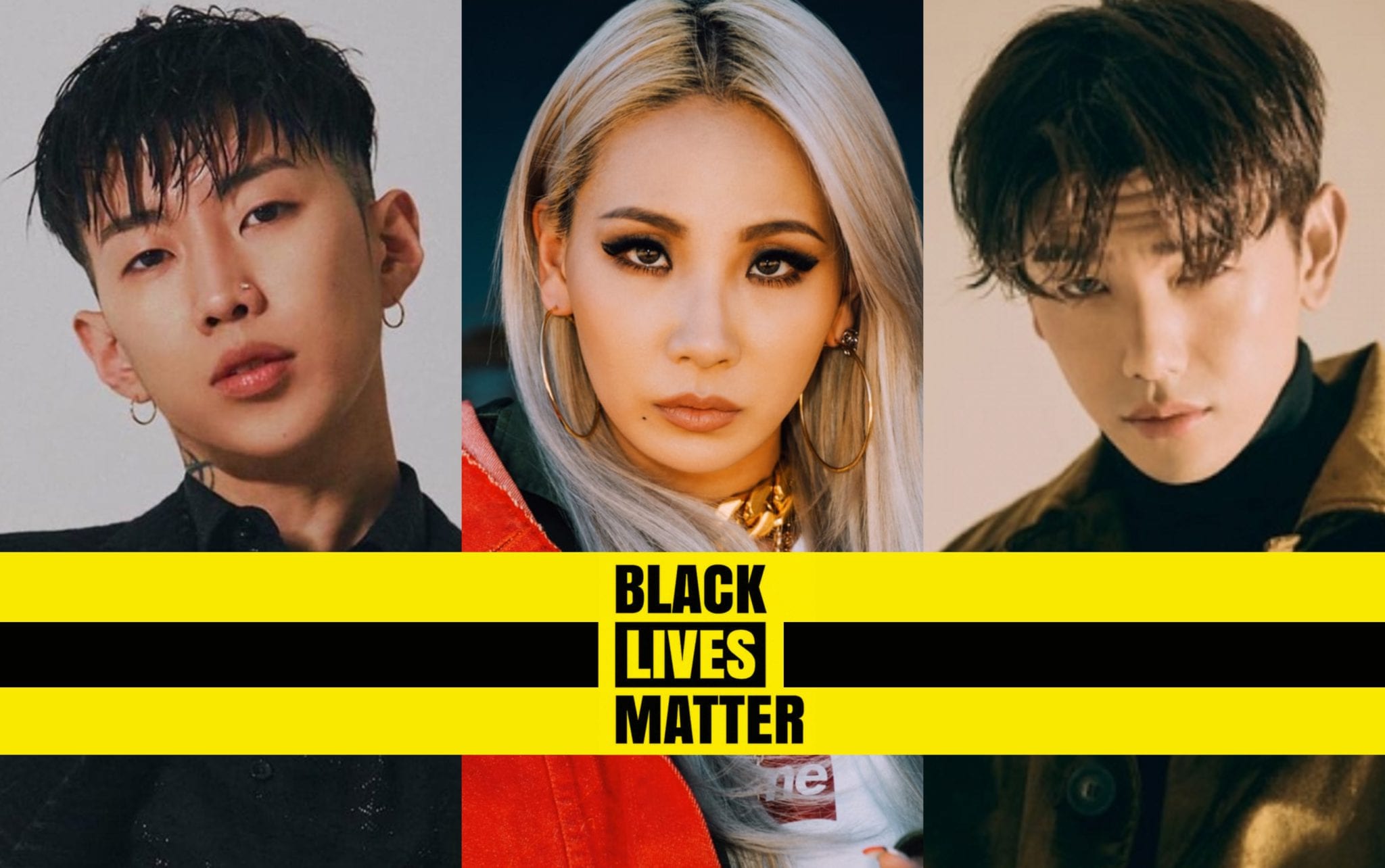We are at a time where tensions are high and justice and equality are being demanded. The Black Lives Matter (BLM) movement has been growing throughout the United States and embraced around the world. As more people are educating themselves about America’s racial disparity, the number of people openly voicing their support for the movement has been increasing, which has helped spark a reevaluation of racial disparity around the globe. Among the worldly increase of support for BLM, South Korea and many of its artists have been publicly posting, donating, and raising awareness of the movement. Some of those artists include BTS, MONSTA X, Jay Park, CL, Jackson (GOT7), Jessi, Flowsik, Hyolyn, Eric Nam, Woo Won Jae, Changmo, Crush, Code Kunst, Amber Liu, and many more. Some of these artists have shown their support by donating, educating their fans about the movement and explaining why they are a part of it, and/or using the social media hashtags that correspond to the BLM movement. Although we have seen a great deal of BLM supporters from both South Korean citizens and idols/artists, there are many that believe more artists should speak up and that when they do, they should do more than just post on social media using #blacklivesmatter and #blackouttuesday.
There may be a few people who don’t understand the opinions of those that believe that South Korean artists should acknowledge the BLM movement. To understand this viewpoint, one has to grasp the battles that African-Americans and black people have to face. Aside from the point that black lives do matter, black culture does as well. For years, black culture has been looked down upon when presented by black people, but made popular and termed innovative when presented by non-black people. Surprisingly, many people today are not aware that Elvis Presley’s famous song “Hound Dog” was originally sung by Big Mama Thornton, an R&B singer who originally sang the track with different lyrics as “an anthem of black female power.”
“White artists like Pat Boone and Bill Haley frequently sanitized and released the songs of black artists, who were often paid very little if at all by the record companies. These covers often climbed much higher up the charts than the original versions. Indeed, Elvis himself was subjected to a racist backlash over his ‘blackness.’ Ike Turner said that he was only paid $20 for Rocket 88. ‘It was easier for them [to succeed], because they were white…’ he said. ‘Here’s the bottom line: there were lots of rhythm and blues artists, and they were doing well in their genre and they were famous and they had the charts and everything,’ he said. ‘[But] the only ones anybody knows today are the ones that were covered by The Beatles, by Elvis, by me and by many artists.’ In fact, if you want to demonize a white rock star, you should probably start with [Pat] Boone, whose covers of songs like Fats Domino’s ‘Ain’t That a Shame’ are musical hate crimes.'”
SBS
Click here to read the full SBS article about how black artists inspired Elvis Presley.
Today, “trends” like Kim Kardashian’s curvy buttocks and boxer braids (which are in all actuality cornrows) and Kylie Jenner’s fuller lips are seen as innovative and many people rush to imitate them. However, these have been a large part of black culture for centuries, but they have been deemed as “ghetto,” “ratchet,” or “unprofessional” on black people. Even today, there continue to be cases where children are suspended for wearing dreads or braids to school or even just made fun of by their teachers (Click here, here, here, or here for examples). Meanwhile, people of other races use these same hairstyles as a concept and coin it with a different name (ie: boxer braids), which is then held up as a cute style for non-black people to try. Concerning the other now-popular “trends” of large butts and plump lips, there were racist caricatures of black people in the past with overly large buttocks and lips in order to mock them by the public. One such example, is the cartoon character Angelfood McSpade, which you can read about here.
In more recent times, there was even a white woman that claimed to have created a washable headwrap, when in fact black women have been using such items for generations.
“In an article with Fashion Magazine, entrepreneur Sarah Marantz Lindenberg claims she ‘came up with the idea’ of a ‘washable silk head wrap’ that prevents breakouts and preserves hairstyles.
‘My concept came out of a problem that needed solving,’ explained Marantz, who founded the company, NiteCap, to sell her so-called ‘invention’ that was already being used by millions of black women every day. ‘It inspired me to create something of my own.‘”
The Root
Click here to read The Root’s full article about this topic.
Another example is the popular sitcom Friends. It was a very popular show that even, unbeknownst to me, received worldwide fame! What a lot of people don’t know, however, is that the concept was taken from a sitcom popular within the black community called Living Single. I mention these examples to say that many times when black people start something, it is either not given any attention or looked down upon. However, when a non-black person does the same thing and calls it a different name, it is often deemed “new” or “original.”
What does this have to do with Korean artists? Well, it’s hard to believe that anybody will disagree that K-pop music has many black influences. We all know that Korean hip-hop does of course, but K-pop does as well. Because the Black Lives Matter movement is trying to reiterate that black lives are just as important as everyone else’s, those who benefit from black culture and its influence should show their support for the movement or risk being seen as just profiting by it— just like those exampled before— and not caring about the struggles and the very lives that have created it.
In addition, there are people who feel that Korean artists should not only acknowledge the BLM movement, but they should also speak up about it and become more involved. Some artists have taken part in the #blackouttuesday and/or made one #blacklivesmatter post and have just seemed to move on in some fans’ eyes. For these fans, it is important that the idols do more than just put one post because it can seem as if the artist is just participating because it is expected. However, in my opinion, I don’t believe that many idols under labels can continue to do much more publicly, even if they wanted to. We all know they have many restrictions, such as dating, and this also includes what they post on social media.
One reason why I’m personally not sure how much more I would like them to speak about it is because they are living in Korea, which is a homogeneous society with different laws and social structures. They are not fully aware of the problems and struggles black people face regularly and therefore can sometimes struggle to give the correct information to their fans. (Editor’s Note: A recent example of this was Amber Liu, an American-born idol who has now been living in Korea for the majority of her life. She has been very active in supporting BLM, but she was recently accused of giving incorrect information to her social media followers, resulting in a Twitter storm of several days. Another example is 2Z’s Hyunwoong. He wrote a song in support of BLM and sampled George Floyd saying “I can’t breathe” in the song. Once uploaded, it was met with severe criticism from listeners. He apologized and said he was just trying to show his support, but he was then removed from his group several days later for “musical differences.”) In America, we have a deep-rooted history with racism. Korea has its own problems with racism as well, but the two countries’ issues with racism are complex and different from one another. As such, understanding one another’s problems can sometimes be difficult and speaking out in support can sometimes shine a light on our ignorance about certain matters, despite good intentions. However, silence is not the answer either. Instead, it is important to educate ourselves about the issues facing us today. I highly recommend watching 13th on Netflix, a documentary film which talks about how the U.S. prison system is modern-day slavery. I also recommend any of the other Black Lives Matter playlists of movies or shows which will give better information than I can in this one article. Of course, for Korean hip-hop artists in particular, I feel it is necessary for them to better understand where hip-hop music comes from and why it was created. From our hairstyles to music to even twerking, everything that black people and African-Americans have created has a history.
Let me know your opinion on this matter. Do you want more idols to acknowledge the BLM movement? Do you want them to do more and speak up more about it? Why is it important to you that these artists do so?
Let us know your thoughts and opinions on this matter by tagging us on Instagram or Twitter @whatthekpop1. We are listening!
panamami started listening to Korean hip-hop and watching K-dramas in early Feb 2015. She finally succeeded in getting her best friend into it a year later and they love discovering new music together. Her favorite artists include Sik-K, DPR Live, and multiple others. Writing this article means a lot to her because she, as a black woman, wanted to give her perspective on the topic of K-pop artists supporting and/or speaking up for BLM. She believes that when Korean hip-hop artists speak up for BLM, it shows that they not only like and respect black culture, but they respect the black lives that create it as well.
*The opinions expressed in this article are that of the author and do not necessarily reflect What The Kpop as a whole. This is a standard disclaimer included in all opinion-based articles and editorials.
Media: via WTK

